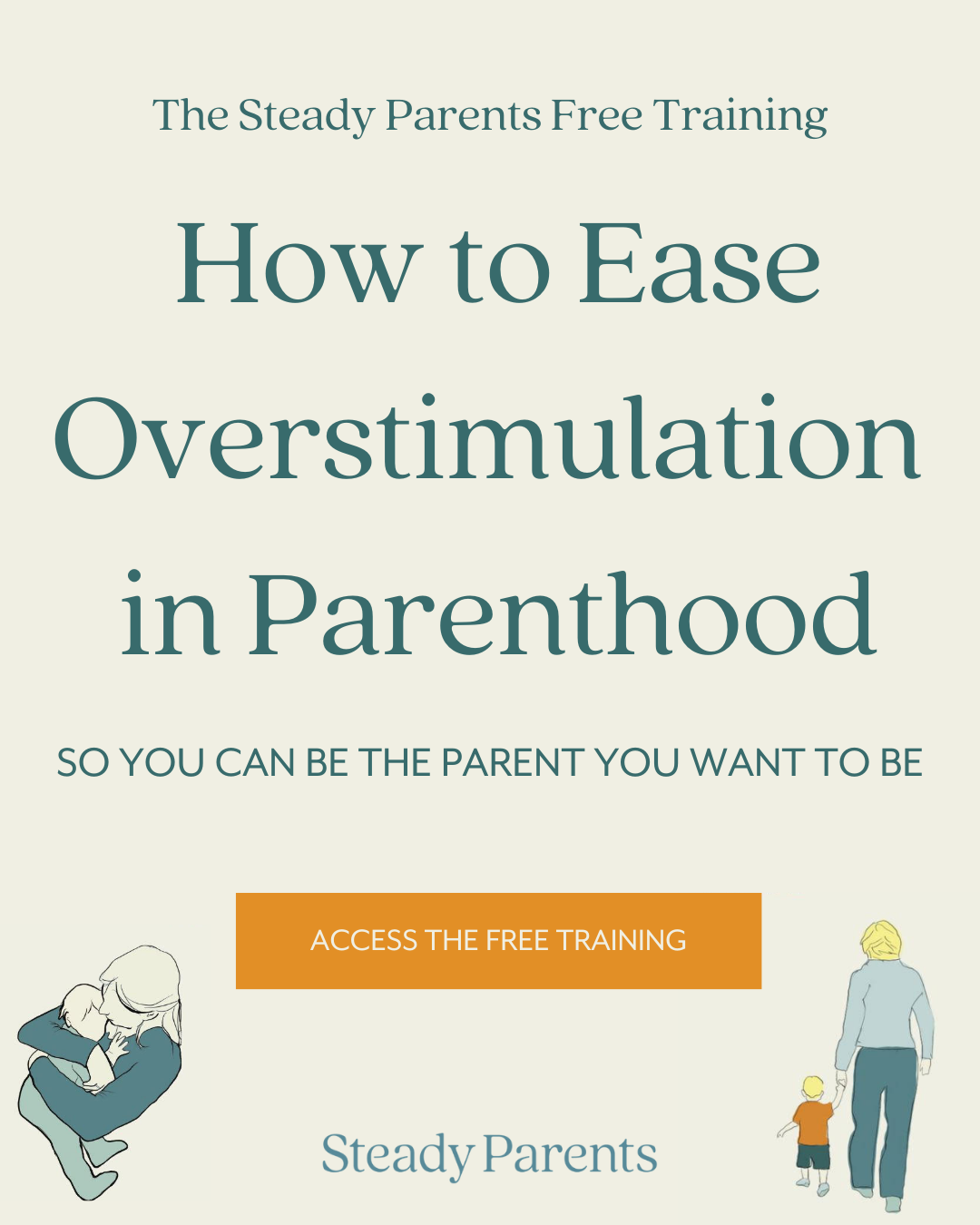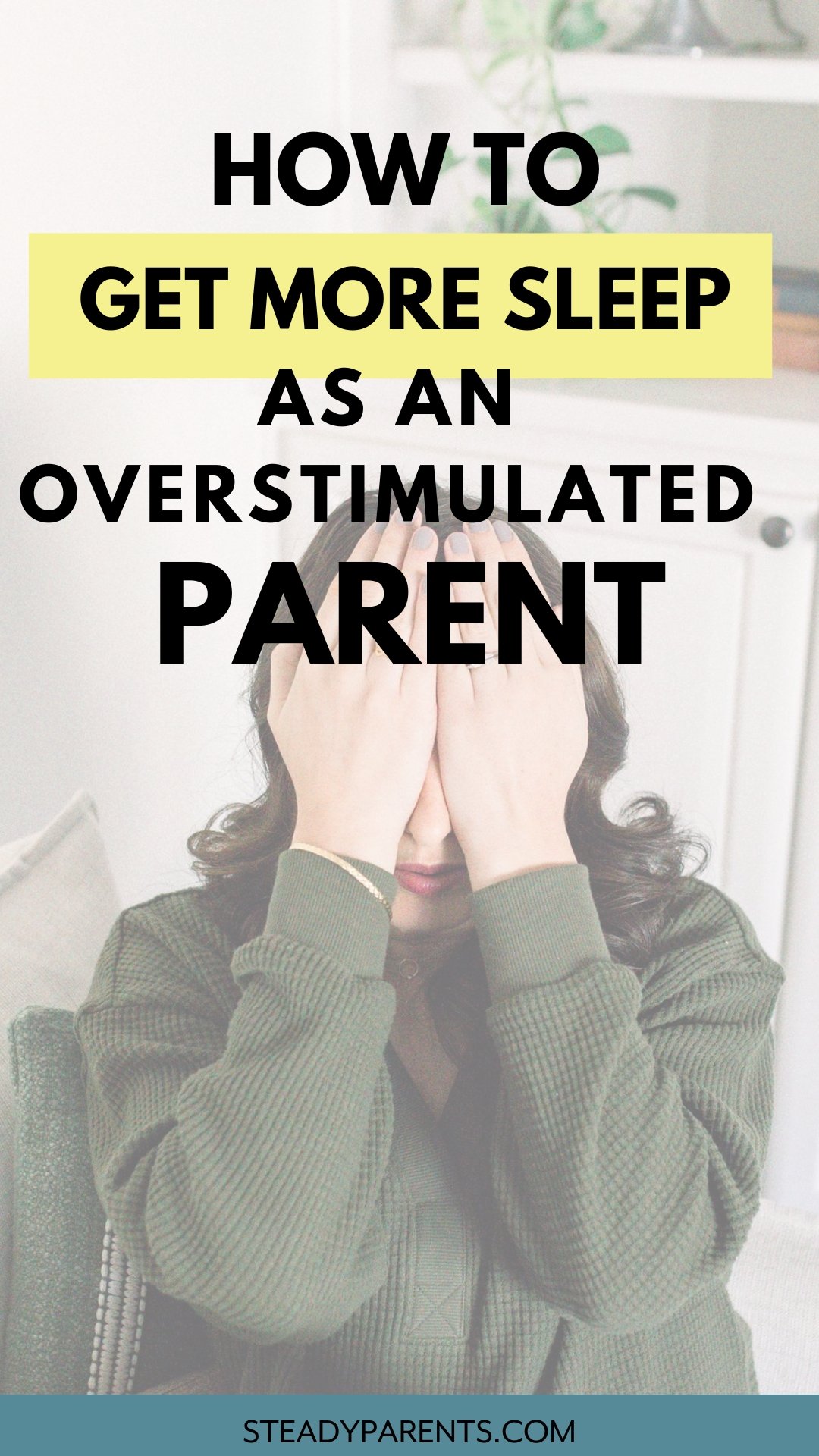Can Screen Time Before Bed Actually Harm Your Nervous System? The Relationship Between Sensory Processing and Sleep
It’s 9pm. Your kids are finally in bed for the night. You lay down in bed, congratulating yourself for making it through another day. You know you should take advantage of the kids earlier bedtime and get some much needed rest yourself and instead, you’re tempted by your phone.
You tell yourself you’re just going to check your email really quick. Or make sure you responded to all your Instagram DMs for the day and then…. Scrolling. Mindlessly scrolling.
And before you know it, it’s close to midnight and instead of catching up on sleep, you’ve set yourself up to feel groggy when your alarm clock goes off in the morning.
We all know it. Screens before bed = bad. 🙅🏽♀️
But we all do it anyway. 🤷🏽♀️
So instead of beating ourselves up for using screens, and feeling helpless that we can’t sleep (but don’t really want to stop the scroll), let’s talk about sleep supports that are ACTUALLY helpful.
Because yes, turning off screens an hour before bed is a great strategy to support sleep. And it can be quite effective. But it’s not the only strategy! And the guilt associated with using a screen when you know you’re not supposed to only makes the sleep anxiety worse.
As an occupational therapist specializing in sensory processing & sensory integration, and how that affects your life as a parent, sleep is one of the number one complaints I hear from parents.
Today we’re talking about the sensory components of sleep, and how you can use sensory tools to your advantage to help you fall asleep and stay asleep.
In this blog post, we will explore why sleep is crucial for preventing overstimulation, the intricate relationship between sensory processing and sleep, and the detrimental effects of smartphone scrolling before bedtime. I’ll share the sensory components of sleep, and how you can use sensory tools to your advantage to help you fall asleep and stay asleep.
The Connection Between Sensory Processing and Sleep
Why is Sleep Important?
Sleep is a fundamental pillar of overall well-being, playing a crucial role in physical and mental health. Adequate and quality sleep is essential for cognitive function, emotional regulation, and maintaining a healthy nervous system.
What Happens to Our Nervous System During Sleep?
During sleep, the body undergoes a complex process of restoration and rejuvenation. The nervous system, which is highly active during waking hours, experiences a shift. The sympathetic nervous system, responsible for the "fight or flight" response, takes a back seat, allowing the parasympathetic nervous system to dominate. This shift promotes relaxation, recovery, and the consolidation of memories.
What Happens When We Don't Get Enough Sleep?
Insufficient sleep disrupts this delicate balance, impacting cognitive function, emotional well-being, and overall health. Chronic sleep deprivation is associated with increased stress levels, impaired concentration, mood disturbances, and a compromised immune system.
Effects of Sleep Deprivation
The effects of sleep deprivation extend beyond feeling tired. Parents, already navigating the demands of parenthood, are more susceptible to irritability, difficulty concentrating, and an increased risk of accidents. Sleep deprivation can also contribute to mental health challenges, exacerbating symptoms of anxiety and depression.
Barriers to Effective Sleep: Why is Sleep Difficult for Overstimulated Parents?
Highly Activated Nervous System
Parents dealing with overstimulation often have a highly activated nervous system. The constant influx of sensory stimuli throughout the day, coupled with the responsibilities of caregiving, can make it challenging to transition from an aroused state to a relaxed one, hindering the ability to fall asleep easily.
For more on the correlation between stress and sleep, check out this blog post from earlier this year!
Can't Transition Between States of Nervous System Arousal
The inability to smoothly transition between states of nervous system arousal can lead to a prolonged period of heightened alertness, even during bedtime. This heightened state makes it difficult for overstimulated parents to unwind and experience the restorative sleep they desperately need.
Sensory Tools to Help You Fall Asleep Faster and Stay Asleep
Sensory Armor – What You Do Proactively During the Day
Creating a sensory-friendly environment during the day can lay the groundwork for better sleep. This involves proactively engaging in activities that promote relaxation, such as deep pressure exercises, sensory breaks, and mindfulness practices.
Creating a Sensory-Supportive Bedtime Routine
Establishing a bedtime routine that incorporates sensory-supportive activities is crucial for preparing the body and mind for sleep.
Dimming lights, engaging in calming activities, and using tools like weighted blankets can signal to the nervous system that it's time to unwind.
If you missed last week’s blog post on palming for relaxation, make sure to check it out as another calming technique to use before bedtime!
Troubleshooting
Addressing common sleep disruptions through troubleshooting is essential. Whether it's discomfort, environmental factors, or internal stressors, identifying and mitigating these issues can significantly improve sleep quality.
Join the Sleep Workshop
To provide comprehensive support to exhausted parents, I am thrilled to announce "Reclaim Your Sleep: A Masterclass for Exhausted Parents." This live workshop will delve into the intricate relationship between sensory processing and sleep, offering practical strategies for both day and night. We'll discuss the role of technology in sleep and provide tools to navigate those moments of sleeplessness and anxiety.
Join us live on Tuesday, March 28, at 11 am PST, with an opportunity for Q&A at the end. Don't worry if you can't make it live – a recording will be available to all who register. Together, let's reclaim the rejuvenating power of sleep and empower parents to navigate the challenges of overstimulation with resilience and ease.
Pin This for Later:









